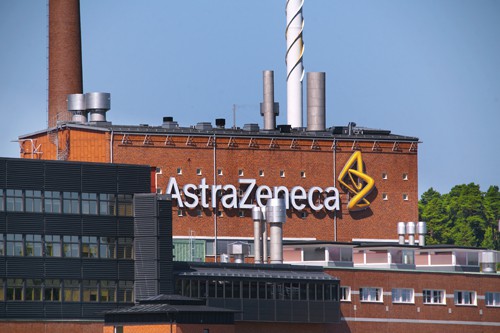
AstraZeneca’s durvalumab has been cleared by the FDA for treating bladder cancer and becomes the fifth drug in the PD-1/PD-L1 inhibitor class to be registered.
The accelerated approval has been given for second-line use of the drug – known as Imfinzi in the US – in patients with locally advanced or metastatic urothelial carcinoma (mUC) after platinum – containing chemotherapy. The FDA also approved Roche’s Ventana PD-L1 assay as a companion diagnostic for assessing PD-L1 protein levels in biopsy tissue.
The FDA nod means that AZ is finally out of the blocks in its bid to catch-up with the leaders in the fast-growing immuno-oncology sector, with drugs in the class already on the market from Bristol-Myers Squibb, Merck & Co, Roche and Merck KGaA/Pfizer, after the FDA placed durvalumab on a temporary clinical hold last year.
AZ’s chief executive Pascal Soriot said the approval “is an important milestone in our return to growth and brings us another step closer to our goal of redefining the way cancer is treated”.
In mUC Imfinzi will compete directly with Roche’s Tecentriq (atezolizumab) – which has also picked up a first-line approval for this form of bladder cancer – as well as BMS’ Opdivo (nivolumab) which got an FDA approval for second-line mUC in February. Meanwhile Merck’s Keytruda (pembrolizumab) has been filed for approval in first-line platinum-ineligible mUC patients, as well as second-line after chemotherapy.
AZ is also pursuing a first-line indication for durvalumab, both alone and in combination with its CTLA4 inhibitor tremelimumab – in the phase III DANUBE trial, with first results due in around 12 months. But analysts at Leerink said in a research note that durvalumab will likely only capture a modest 10% of the bladder cancer market estimated at around $2.3bn.
A bigger pay-off for AZ could come if it can claim approval for Imfinzi in first-line non-small cell lung cancer (NSCLC), a much bigger market than bladder cancer and a necessary stepping stone on the way to AZ’s ambition to turn the drug into a $6.5bn cancer powerhouse. The combination of durvalumab and tremelimumab is central to that expectation, although analysts think it could be a stretch with peak sales estimates generally around the $2bn mark.
AZ has priced its drug at around $15,000 per month ahead of discounts or rebates – with the actual cost depending on the patient’s weight – which at face value seems a little higher than the £12,500 charged by Roche for Tecentriq.




